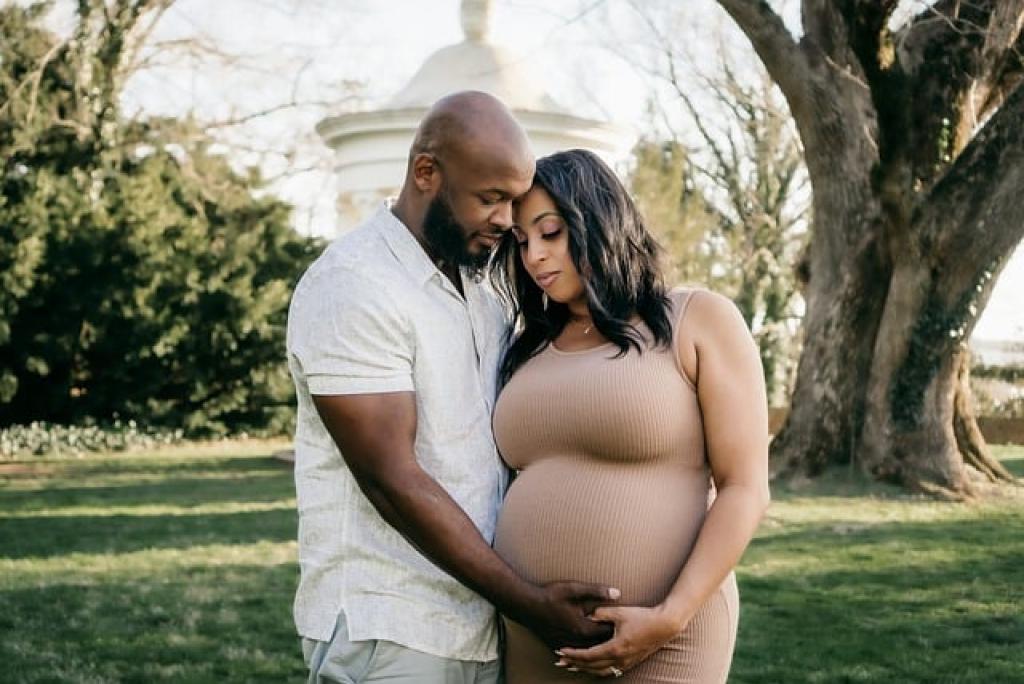Pregnancy is a time filled with joy, anticipation, and countless questions. Expectant mothers are often extra cautious about what they put into their bodies to ensure the safety of their growing baby. One area that has sparked much curiosity and debate is the use of CBD, or cannabidiol, during pregnancy.
CBD, a compound derived from the cannabis plant, is lauded for its potential benefits in alleviating anxiety, pain, and even morning sickness. But how safe is it for pregnant women?
We’ll delve into the latest research, expert opinions, and potential risks and benefits to help you navigate this complex topic. Whether you’re currently expecting or planning for the future, understanding the facts about CBD and pregnancy is crucial for making informed decisions.
Is CBD Safe to Use During Pregnancy?
The safety of using CBD during pregnancy remains a topic shrouded in uncertainty. Since CBD is relatively new to the mainstream market, comprehensive studies on its effects on pregnant women and their babies are limited.
Current research on CBD’s impact on pregnancy primarily stems from animal studies. These studies have shown mixed results, raising concerns about potential developmental issues and other risks. However, it’s worth noting that animal studies don’t always directly translate to humans.
Healthcare professionals typically advise against using CBD during pregnancy due to the lack of concrete evidence. The primary concern is the potential for CBD to interact with other medications or to have unknown side effects on the developing fetus.
Pregnant women should always consult their healthcare provider before considering CBD or any supplement. It’s crucial to weigh the potential risks against the potential benefits and make informed choices grounded in professional medical advice.
Potential Risks and Concerns
While CBD might offer potential benefits, it’s important to be aware of the risks and concerns associated with its use. One of the primary issues is the lack of regulation in the CBD market. Without consistent oversight, it’s challenging to guarantee the purity and potency of CBD products.
Furthermore, CBD can interact with other medications. These interactions can amplify or reduce the effectiveness of the medications, leading to unpredictable health outcomes. Always consult your doctor about potential drug interactions if you’re considering trying CBD.
Another concern is the possible side effects. While many people tolerate CBD well, some may experience symptoms like fatigue, diarrhea, and changes in appetite or weight. These side effects could be especially concerning for vulnerable populations like pregnant women or those with chronic conditions.
There’s also the broader question of long-term effects. Since CBD hasn’t been widely used for an extended period, we don’t yet understand all the potential long-term impacts, particularly involving developing bodies and minds.
Given these risks and concerns, it’s vital to proceed with caution and prioritize professional medical advice when considering incorporating CBD into your routine.

Research and Studies on CBD in Pregnancy
The topic of CBD use during pregnancy is still very much in its infancy when it comes to scientific research. To date, there are limited studies exploring the safety and efficacy of CBD for pregnant individuals. This scarcity of information makes it difficult for healthcare professionals to offer clear guidance.
Most of the existing research has been conducted on animals rather than humans. These studies suggest that high doses of CBD could potentially affect fetal development. However, translating these findings to human pregnancies presents significant challenges, as dosages and biological responses can differ dramatically.
Some medical experts worry about the impact of CBD on the developing brain of a fetus. Even though CBD is generally considered non-psychoactive, its influence on neurotransmitter systems could pose risks that we don’t fully understand yet. This is an area where more focused clinical trials are desperately needed.
Additionally, there’s a concern about the long-term effects on children exposed to CBD in utero. Without comprehensive and controlled human studies, it’s impossible to ascertain whether there are subtle, long-lasting impacts on cognitive or physical development.
Best Practices for CBD Use During Pregnancy
Given the current lack of comprehensive research, it’s vital to approach CBD use during pregnancy with caution. Here are some best practices to consider:
Consult Your Healthcare Provider
First and foremost, always talk to your healthcare provider before starting any CBD regimen. They can offer personalized advice based on your medical history and the specifics of your pregnancy.
Quality matters when it comes to CBD products. Look for brands that offer third-party lab testing to ensure they are free from contaminants like heavy metals and pesticides. This ensures you’re using a product that’s as safe as possible.
Start Low and Go Slow
If you do decide to use CBD, start with a very low dose and monitor how you feel. Every individual’s body reacts differently, and you need to be especially careful during pregnancy. Keep a journal to track any effects or side effects.
It’s also important to use CBD in a form that you’re comfortable with. Whether it’s oil, capsules, or topical applications, make sure it fits into your lifestyle without adding any undue stress.
Lastly, consider alternative ways to manage pregnancy symptoms. Techniques like prenatal yoga, mindfulness, and other natural remedies can also be effective in alleviating discomfort and stress during pregnancy.
In a nutshell, proceed with extreme caution, prioritize safety, and maintain open communication with your healthcare provider to make the best decisions for both you and your baby.
Consulting with Healthcare Providers
Talking to your healthcare provider about CBD use during pregnancy is crucial. They have access to the most current medical research and can offer insights tailored to your situation.
When discussing CBD with your provider, be open and honest about your reasons for considering it. Whether it’s for pain management, anxiety, or another reason, clear communication can help them provide the best advice.
Don’t be afraid to ask questions. Inquire about potential risks and benefits, and how CBD might interact with other medications or prenatal vitamins you’re taking. This information can help you make an informed decision.
It can also be helpful to bring any existing research you’ve found, as well as details about the specific CBD product you’re considering. The more information you share, the better guidance your healthcare provider can offer.
Finally, follow up regularly. If you do start using CBD, keep your provider updated on your experience. Adjustments may be necessary, and ongoing dialogue can ensure you’re on the right track.
The Bottom Line on CBD and Pregnancy Safety
In summary, navigating the world of CBD during pregnancy can be challenging. Research is still evolving, and currently, there’s limited information on its safety for expectant mothers. This lack of concrete evidence is why leading health organizations advise against using CBD while pregnant.
However, many pregnant individuals are seeking alternatives to traditional medicines for managing symptoms like anxiety and pain. If you’re considering CBD, having a candid conversation with your healthcare provider is essential. Their expertise can guide you towards the safest choices for both you and your baby.
Furthermore, prioritize high-quality products if you do decide to use CBD. Opt for those that are third-party tested to ensure purity and accurate dosing. Avoid products with ingredients that could be harmful and steer clear of those with high THC levels.
Remember, every pregnancy is unique. What works for one person may not be suitable for another. That’s why it’s crucial to base your decisions on personalized medical advice and the most current research available.
Ultimately, the safety and wellbeing of you and your baby are paramount. Weighing the potential risks and benefits, staying informed, and consulting with healthcare providers can help you make the best decision for your pregnancy journey.






